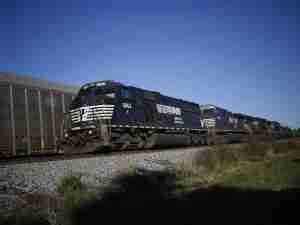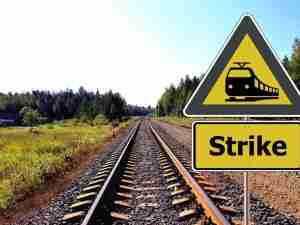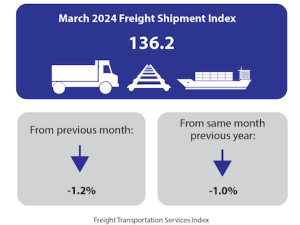BNSF drops plan to buy tank cars on customer concerns
By: Reuters | May 18 2015 at 07:57 AM | Intermodal
HOUSTON - BNSF Railway Co this week told customers it had dropped a plan announced last year to buy 5,000 stronger crude oil tank cars after customers were concerned about the company moving into railcar ownership.
The letter from the company, owned by Warren Buffett’s Berkshire Hathaway Inc, went out a week and a half after the U.S. Department of Transportation (DOT) unveiled new standards for rail cars that carry crude and ethanol, along with new operational rules.
“We do have concerns that additional provisions of the DOT rule will remove capacity from our network, particularly the electronically controlled pneumatic brakes mandate,” the company said.
BNSF spokeswoman Roxanne Butler confirmed the information in the company letter to customers.
Three BNSF crude trains that have crashed or derailed and caught fire since late 2013 - the latest just last week - are part of a spate of such fiery accidents that focused attention on safety.
Under the new rules, all new cars built after Oct. 1 this year must have 9/16-inch hulls - thicker than the industry standard of 7/16-inches adopted in 2011 - and other reinforcements to protect against punctures and leaks in a derailment.
The 7/16-inch cars can be retrofitted with protections for top and bottom fittings, steel shields on the front and back and “jackets,” or an extra layer of steel around the hull, on a staggered schedule depending on how strong they are now.
The industry largely expected rules for thicker steel and other reinforcements, but the brake issue has prompted opposition. The American Petroleum Institute is challenging that provision. {ID:nL1N0Y403E]
In its letter, BNSF advised customers who buy new rail cars to include structures that allow enhanced brakes to be added at a later date “while the industry continues to work through these issues.”
BNSF in February last year asked railcar manufacturers to submit proposals to build a stronger car than the 2011 standard, just three months after a BNSF crude train hit a derailed grain railcar in North Dakota, causing a fire that lasted several days. The move was unusual, as railroads generally own just the tracks and locomotives, while shippers or railcar leasing companies own the cars.
But BNSF’s letter said that in later conversations with shippers, “BNSF owning or leasing tank cars was not viewed as useful,” so the company scrapped the idea.







